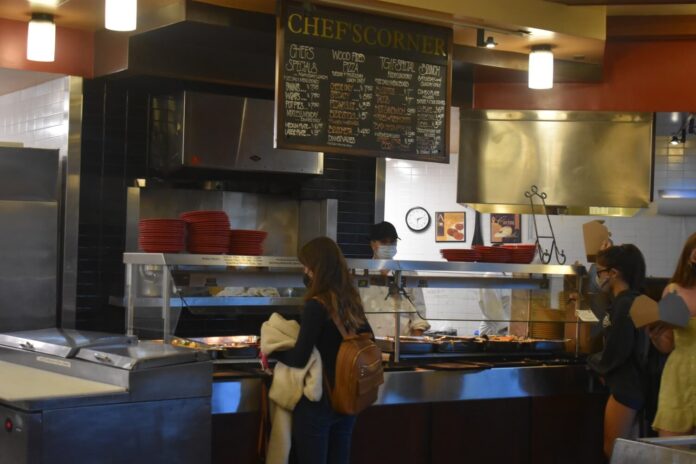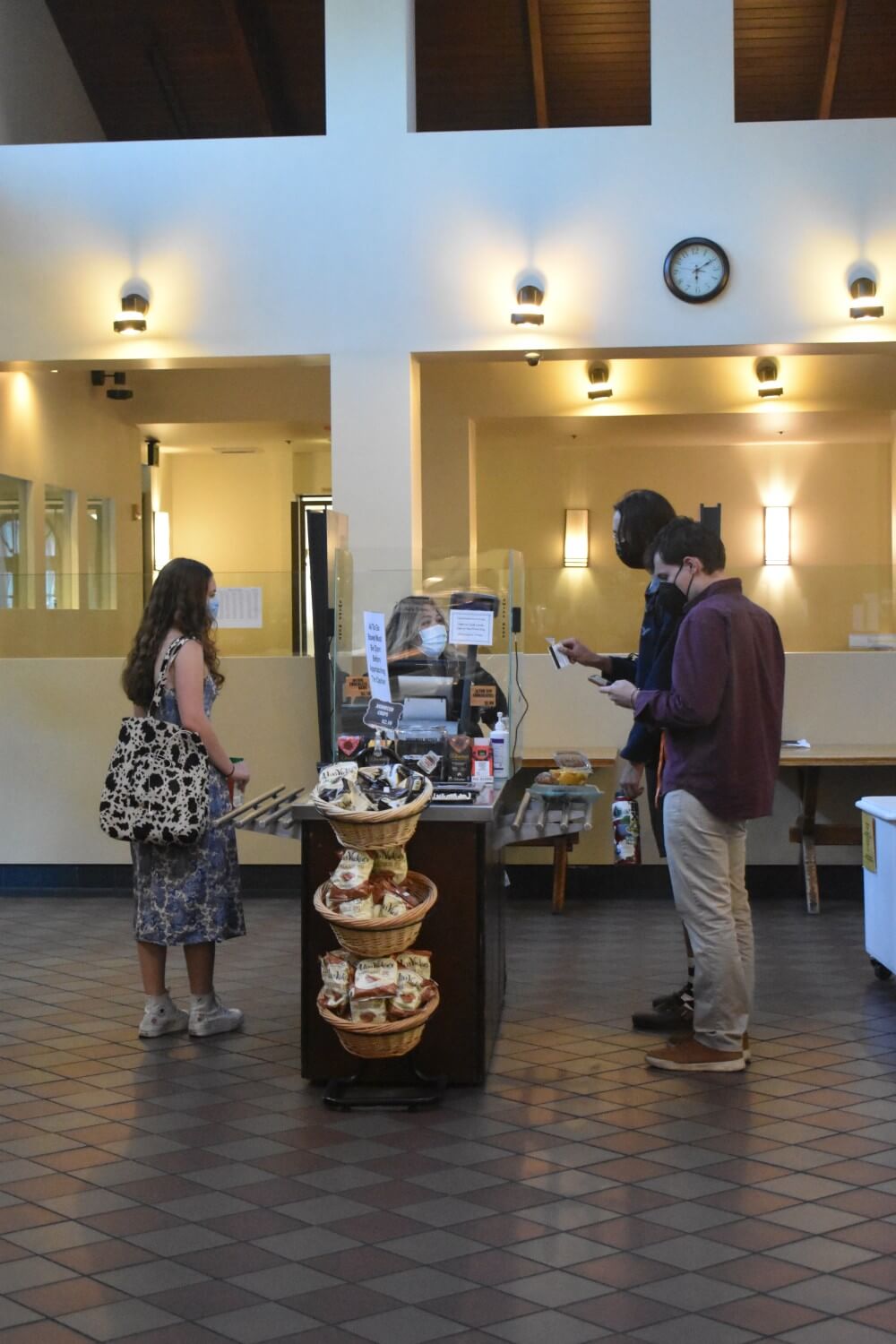
Occidental College’s Marketplace and Tiger Cooler, the two main sources of food on campus for students, have struggled to respond to inflation and industrywide labor shortages, according to Erik Russell, assistant vice president for hospitality and auxiliary services.
“Food prices are going up,” Russell said. “The cost of labor is going up, along with disruption in the labor force. There is also the increase in fuel costs.”
The U.S. Bureau of Labor Statistics (BLS) states that food prices increased 11.4 percent in August; food inflation is at its highest level since 1979. Russell said the increase in costs translates to delivery and fuel surcharges, including surcharges from suppliers who had not previously added them.
According to Russell, most of Occidental’s food supply comes from a distributor, Sysco, while some specialty products that count towards the school’s Real Food Challenge come directly from manufacturers. Russell said that all vendors were maintained through the pandemic, and that premium products come at a premium price.
“There’s a nuanced dance that I need to do on this campus,” Russell said.

Russell came to Occidental from USC, a larger client which he said has greater leverage in negotiations with food suppliers. Russell said at Occidental, there are fewer options, which is a cost associated with self-operating rather than outsourcing operations. According to Russell, this creates a difficulty in dealing with the surge in pricing as a college with a smaller budget, especially as he said the college is not passing the increased costs onto students.
“The more money you spend, the lower your prices get. Here, we don’t have that luxury,” Russell said.
Compounding the issue, the ongoing labor shortage has made hiring difficult and seems to be of unprecedented severity, according to Russell. He said high attrition rates are an issue that the hospitality industry is struggling with.
“We are struggling with labor like I’ve never seen in my 30-year career. It’s just hard to find people,” Russell said. “We’re so understaffed, and they’re struggling with the supply chain. So, it’s not isolated to this campus.”
Jenny Mendoza, a cashier at the Marketplace, has been at Occidental since 2004. Mendoza said inflation and staff shortages have made work stressful and have had an effect on staff members’ daily allowance. While students still pay half price, staff and faculty pay full price for their meals, Mendoza said, adding that they are the ones most strongly feeling the effects of rising costs.
“We can’t even buy chips for a dollar,” Mendoza said.
Jessica Escalante, who has worked as a cook at Occidental for 18 years, also said that inflation pricing is affecting workers.
“We get $10 right now to buy food, but everything’s so expensive,” Escalante said. “We can only afford maybe a meal and maybe, if we’re lucky, a soda? That’s for the whole day.”
Escalante is especially concerned that the food quality is declining because of costs and labor shortages. For example, instead of preparing soups freshly every day, the kitchen now uses frozen soups. Escalante said students sometimes get frustrated by these changes, or when staff cannot accommodate their requests for extra toppings or larger portions.
“It is stressful. We try to accommodate [the students] in any way possible. But we’ve had a couple of complaints because of the portions of the food,” Mendoza said.
According to Escalante, much of the pleasure from work comes from interacting with the students. But with the shortages, she said she is too busy for that.
“We love the kids,” Escalante said. “But it’s come to a point now where I’m cooking, I’m just like, ‘Here, here.’ And I don’t like that. I like to socialize.”

Escalante said the Marketplace is very understaffed, especially when people call in sick, and this adds to the difficulty of the job. According to Mendoza, in an attempt to mitigate the effects of the labor shortages, Occidental has recently outsourced to Culinary Staffing Service, an outside staffing agency for hospitality workers in Los Angeles.
Navigating the outsourcing of staff, Russell said that it is challenging to balance the interests of all involved amidst the uncertainty.
“There’s no magic bullet,” Russell said. “There’s no easy way to handle this. But it will take some time for this to play out, just because of many variables that are involved.”
According to Russell, though the operations of Campus Dining are mainly geared toward students, the department stays busy with myriad demands. This includes catering special events, summer conferences, community events, weddings and even food for film crews on campus.
This is all new to Russell, who was hired in the summer when campus was quiet. Now school is in full swing, and he said he is grateful for the help he is getting from the veteran staff.
“My colleagues that I work with, we’re all in this together. And they’ve been very kind and have worked with me a lot and taught me a lot in the short time I’ve been here,” Russell said.
Contact Henry Dorosin at dorosin@oxy.edu.
![]()






























